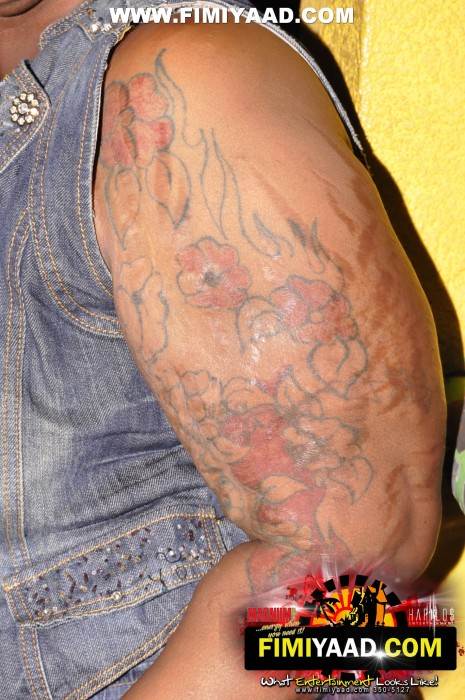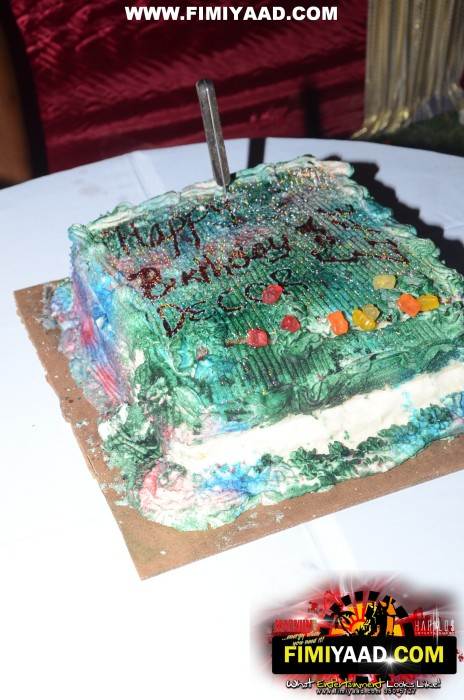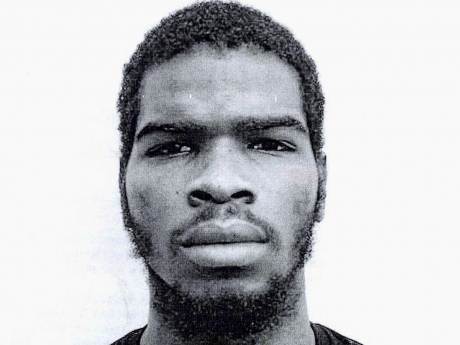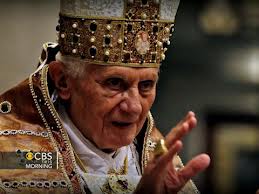WTF AFRICA -THIEF MADE TO DRINK ENGINE OIL
A suspected thief who allegedly stole a mobile phone was baptized with and forced to drink dirty engine after he was subjected to severe beatings.
The suspect, James Amanor, a 23-year-old scrap dealer, after receiving the beatings, was marched to a nearby fitting shop near the Community 18 Junction, close to Sakumono in Tema, by the irate mob. The mob poured gallons of dirty engine oil on him and forced him to drink some.
Amanor managed to escape into a bush at the Sakumono Ramsey site in Tema after he was set free by his captors who refused to heed his plea for him to be taken to the nearest police station. Narrating the incident which led to Amanor’s arrest, the residents claimed the suspect, along with is friend, unexpectedly snatched a Nokia mobile phone from a passer-by after they had monitored the victim to an isolated area.
They said Amanor snatched the phone from the victim and passed it on to his colleague who was ahead of the victim and bolted with it. Luck however eluded Amanor as he was apprehended after the victim had raised an alarm of losing his phone to the suspects, attracting the attention of some residents.
They said, “We gave them a hot chase but the other guy managed to escape but we managed to arrest this one at the Shalom Spot.” A casual observer nearly incurred the wrath of the irate youth when he attempted to implore the angry residents to take the alleged thief to the nearest police station or set him free, instead of taking the law into their hands.
According to them, Amanor’s incident was the second time thieves had stolen valuables from the area.
DOES GOD DETERMINE THE TIME OF A PERSON’S DEATH?- GOOD MORNING
Does God determine the time of a person’s death?
God is at War: The Spiritual Battle – Don’t Blame God series (2 of 4)
Get the code to add this video to your MySpace profile / website.
Here are two very significant theological statements that too few Christians understand:
(1) Life is not a giant bakery.
(2) People are not milk cartons.
How many times have you heard people say, when commenting on someone’s untimely death (biblically, all death is untimely), “His number was up.” Huh?
My question is: What number?
Yes, the Bible speaks about “the bread of life,” but life is not a giant bakery, as in “Take a number.” In the bakery scenario, people wait with anticipation for their number to be “up,” so they can enjoy the jelly doughnut or whatever. But in life, no one wants to hear his number called and find a speeding bus inches away from him.
Or what about someone saying that he had a close call with death, but “It wasn’t my time to go.” That could give special meaning to the ordinary question, “What time is it?” Your time. nooo!!!
And I ask, “Who sets that time?”
Yes, the Bible speaks of “the milk of the Word,” but people are not milk cartons. That means that no human being comes from the factory with an expiration date stamped on him or her.
I’m not sure what year it was that expiration dates began to be stamped on food products, but when you see something with a date in the next decade, don’t eat it. The preservatives in it will not preserve you. What does preserve you, or at least give you the best chance of sticking around this life for a while, is learning the will of God from the Word of God, and doing it. God created mankind with genuine free will, and our choices play a major role in determining the quality, and length, of our lives.
If we hold to the Bible as the only source of truth regarding God, Jesus, and all spiritual matters, we will not find ourselves believing that people are milk cartons in a giant bakery, because those ideas are nowhere in Scripture. The Word of God does not say that He determines the time of a person’s death. Legally, that would make Him a murderer.
God makes it clear, for those with eyes to see and ears to hear His Word, that He is love, that death was never part of His original plan, and that He wants all people to live and be blessed by having a personal relationship with Him and His Son, the Lord Jesus. God gave us genuine free will, and our choices in large part determine our quality and quantity of life on this earth.
DOG PAW GUILTY
Reputed gang leader Christopher Linton more popularly known as ‘Dog Paw’ has been found guilty on gun-related charges.
The ruling was handed down a short while ago by Justice Sarah James-Thompson in the Home Circuit Court.
His co-accused Micah Allen was also found guilty.
Sentencing has been set for March 15.
They are charged with shooting with intent and illegal possession of a firearm and ammunition.
The Crown led evidence that on April 11, 2010 Linton and Allen were among a group of gunmen who shot at a police team along Tavern Drive, St Andrew.
A third accused, Ricardo Jones, was freed last month following a no-case submission.
SCANDAL AT THE TIP OF MOUNT EVEREST
A shy, tough-minded theologian who seemed to relish writing books more than greeting stadium crowds, Benedict, 85, was elected by fellow cardinals in 2005 after the death of John Paul II. An often divisive figure, he spent much of his papacy in the shadow of his beloved predecessor.
Above all, Benedict’s papacy was overshadowed by clerical abuse scandals, a scandal of leaked documents from within the Vatican itself and tangles with Jews, Muslims and Anglicans. In the case of his handling of the sex abuse crisis, critics said that his failures of governance were tantamount to moral failings.
In recent months, Benedict had been showing signs of age. He often seemed tired and even appeared to doze off during Midnight Mass on Christmas Eve, after being brought to the altar of Saint Peter’s on a wheeled platform. But few expected the pope to resign so suddenly, even though he had said in the past that he would consider the option.
“The pope took us by surprise,” said the Vatican spokesman, the Rev. Federico Lombardi, expounding on one of the most dramatic moments in centuries of Vatican history. He appeared at a hastily-called news conference on Monday, where he stood by himself at the lectern, with an unopened bottle of mineral water and a dog-eared copy of a Canon Law guide before him.
Father Lombardi said that the pope would continue to carry out his duties until Feb. 28 at 8 p.m., and that a successor would likely be elected by Easter, which falls on March 31. But he said the timing for an election of a new pope is “not an announcement, it’s a hypothesis.”
He said that the pope did not display strong emotions as he made his announcement, but spoke with “great dignity, great concentration and great understanding of the significance of the moment.”
Monday’s announcement plunged the Roman Catholic world into intense speculation about Benedict’s successor, and seemed likely to inspire many contrasting evaluations of a papacy that was seen as both traditionalist and contentious — though perhaps not so confrontational as many had feared of the man they called “God’s Rottweiler” for his tenacious defense of church doctrine.
Benedict was deeply distraught about the decline in religious belief in the West, and had spent the previous 25 years as the head of the Vatican’s doctrinal office, the powerful Congregation for the Doctrine of the Faith. There, he had watched his beloved predecessor, John Paul II, slowly decline with Parkinson’s Disease.
“In today’s world,” Benedict said in his announcement, “subject to so many rapid changes and shaken by questions of deep relevance for the life of faith, in order to govern the bark of St. Peter and proclaim the gospel, both strength of mind and body are necessary, strength which in the last few months has deteriorated in me to the extent that I have had to recognize my incapacity to adequately fulfill the ministry entrusted to me.”
“For this reason,” he continued, “and well aware of the seriousness of this act, with full freedom, I declare that I renounce the ministry of bishop of Rome, successor of St. Peter.”
At the news conference, Father Lombardi noted that in a 2010 book-length interview with a German journalist, Benedict had said that, “if a pope clearly realizes that he is no longer physically, psychologically, and spiritually capable of handling the duties of his office, then he has a right and, under some circumstances, also an obligation to resign.”
The interview was conducted in 2010, at the height of a new wave of the sexual abuse crisis, and at that time Benedict held fast to his office. “When the danger is great one must not run away. For that reason, now is certainly not the time to resign,” the pope said then. “One can resign at a peaceful moment or when one simply cannot go on. But one must not run away from danger and say that someone else should do it.”
Multimedia
The Resignation of Pope Benedict XVI
Related
The Lede: Latest Updates on the Pope’s Resignation (February 11, 2013)
Pope Resignation Announcement Text (February 11, 2013)
Times Topic: Pope Benedict XVI
Do Popes Quit? (April 11, 2010)
Connect With Us on Twitter
Follow @nytimesworld for international breaking news and headlines.
Twitter List: Reporters and Editors
Readers’ Comments
Share your thoughts.
Post a Comment »
Read All Comments (879) »
Benedict’s brother, the Rev. Georg Ratzinger, said that the pope’s weakening health had led him to step down. “His age was taking its toll,” the 89-year-old told the German news agency dpa on Monday, adding that he had been aware of his brother’s plan for several months. Father Lombardi said that the pope would retire first to his summer residence in Castel Gandolfo, in the hills outside Rome, and later at a monastery in Vatican City.
Benedict, the former Cardinal Joseph Ratzinger, was elected on April 19, 2005. At the time of his election, Benedict was a popular choice within the college of 115 cardinals who chose him as a man who shared — and at times went beyond — the conservative theology of his predecessor and mentor, John Paul, and seemed ready to take over the job after serving beside him for more than two decades.
The church’s 265th pope, Benedict was the first German to hold the title in half a millennium, and his election was a milestone toward Germany’s spiritual renewal 60 years after World War II and the Holocaust. At 78, he was also the oldest new pope since 1730.
But Benedict was seen as a weak manager and his papacy was beset by debilitating scandals, most recently “Vatileaks,” in which his butler was convicted by a Vatican court in October of aggravated theft after he admitted to stealing confidential documents, many of which wound up in a tell-all book that showed behind-the-scenes Vatican intrigue.
In 2009, Benedict provoked global outrage when he revoked the excommunication of four schismatic bishops from the arch-traditionalist Society of St. Pius X, one of whom, Richard Williamson, had denied the scope of the Holocaust in a television interview.
At the time, Benedict said he had wanted to heal a rift within the church. But coming from a German pope who had served in the Hitler Youth, however unwillingly, his actions outraged Jewish groups and German Chancellor Angela Merkel.
Late last year, talks between the Vatican and the Society broke down after its current leader refused to recognize the liberalizing reforms of the Second Vatican Council — including a greater role for women in the church and absolving contemporary Jews of guilt for the death of Jesus — which the pope said were necessary for the group to be returned to full communion with the Church.
Above all, Benedict’s tenure was entangled in growing sexual abuse scandals in the Roman Catholic Church that crept ever closer to the Vatican itself.
In 2010, as outrage built over clerical abuses, some secular and liberal Catholic voices called for his resignation, their demands fueled by reports that laid part of the blame at his doorstep, citing his response both as a bishop long ago in Germany and as a cardinal heading the Congregation for the Doctrine of the Faith, which handles such cases.
In one disclosure, news emerged that in 1985, when Benedict was Cardinal Josef Ratzinger, he signed a letter putting off efforts to defrock a convicted child-molesting priest. He cited the priest’s relative youth but also the good of the church.
For his supporters, it was a painful paradox that the long-gathering abuse scandal finally hit the Vatican with a vengeance under Benedict. As the church’s doctrinal leader he had been ahead of many of his peers in recognizing how deeply the institution had been damaged. As early as 2005, he obliquely referred to priestly abuse as a “filth in the church.”
He went on to apologize for the abuse and met with victims, a first for the papacy. But he could not escape the reality that the church had shielded priests accused of molesting, minimized behavior it would have otherwise deemed immoral and kept it secret from the civil authorities, forestalling criminal prosecution.
Critics of Benedict said that his failures of governance were tantamount to a moral failing.
“Having wielded power so aggressively in an intellectual sphere, he became pope and shrank from the full power of the office, refusing to prosecute guilty cardinals and bishops who recycled predators in the abuse crisis,” said Jason Berry, the author of “Render Unto Rome” about the Vatican’s finances and other books on the abuse crisis.
Multimedia
The Resignation of Pope Benedict XVI
Related
The Lede: Latest Updates on the Pope’s Resignation (February 11, 2013)
Pope Resignation Announcement Text (February 11, 2013)
Times Topic: Pope Benedict XVI
Do Popes Quit? (April 11, 2010)
Connect With Us on Twitter
Follow @nytimesworld for international breaking news and headlines.
Twitter List: Reporters and Editors
Readers’ Comments
Share your thoughts.
Post a Comment »
Read All Comments (879) »
“He approved an investigation of nuns for straying from doctrine, yet failed to confront the antiquated tribunal system that gives men in the highest offices of the church de facto immunity from justice,” Mr. Berry added.
The church Benedict inherited was in crisis, the sexual abuse scandal being its most vivid manifestation. It was an institution run by a largely European hierarchy overseeing a faithful largely residing in the developing world. And it was increasingly being torn between its ancient, insular ways and the modern world.
For the church’s liberal elements, rather than being the answer to that crisis, Benedict’s election represented the problem: an out-of-step conservative European academic. Many wondered if he would be a mere caretaker, filling the post after the long papacy of the beloved John Paul until a younger, more dynamic heir could be elevated.
As the Vatican’s doctrinal leader, Benedict’s had asserted that Catholicism is “true” and other religions are “deficient”; that the modern, secular world, especially in Europe, is spiritually weak; and that Catholicism is in competition with Islam. He had also strongly opposed homosexuality, the ordination of female priests and stem cell research.
Born on April 16, 1927, in Marktl am Inn, in Bavaria, he was the son of a police officer. He was ordained in 1951, at age 24, and began his career as a liberal academic and theological adviser at the Second Vatican Council, supporting many efforts to make the church more open.
But he moved theologically and politically to the right. Pope Paul VI named him bishop of Munich in 1977 and appointed him a cardinal within three months. Taking the chief doctrinal job at the Vatican in 1981, he moved with vigor to quash liberation theology in Latin America, cracked down on liberal theologians and in 2000 wrote the much-debated Vatican document “Dominus Jesus,” asserting the truth of Catholic belief over others.
Benedict also faced questioning by some critics about what he and others have said was his conscription into the Hitler Youth and the Germany Army during the Nazi era. He was also faced accusations that he displayed reticence and insensitivity about the Holocaust.
In a book-length interview in 1997, Benedict, then Cardinal Ratzinger, said, “As a seminarian, I was registered in the Hitler Youth.” He added, “As soon as I was out of the seminary, I never went back.” As pope he visited Auschwitz in 2006 as a gesture of atonement, calling himself a “son of the German people.”
Benedict “centered his papacy on giving faith to Christians, focusing on the essence of what it means to be a Christian, and he managed to do it in spite of the fact that his communicative capacities weren’t so brilliant,” the Vatican expert Sandro Magister said. “Most common people, I don’t mean intellectuals, saw him as a disinterested man who spent all his life for a high cause, which was to revive the faith.”
In Rome, where souvenir shops often carry more postcards of John Paul than Benedict, news of Benedict’s resignation was met with surprise and some sadness. “Anyone could tell that he was old and sick, and that such a complicated situation like the one he has to face is a lot, but I had never heard that a Pope could quit,” said Simonetta Piersanti, 52, a cleaning woman in a residence run by nuns.
She mentioned a common Roman saying, “When a pope dies, they just elect another,” which captures the lack of excitement with which Italians greet historic events. “We’ll have to do it even without the death part,” she added.
THE ENTERTAINER, THE EMBASSY PERSONNEL AND THE U.S LAW
– There is another Embassy employee investigated but I am unable to confirm if he has been charged, his name is Dave, he also went along with Rainsberger and the entertainer
– The picture submitted to the media, was an outing of some sorts because he was also in the photograph

– The manager has also stayed out of Jamaica as he faces bribery charges stemming from the man that was assaulted by the D.J’s cronies in Montego-Bay
-Speculations are that as was said last year, the manager and the D.J entered into a deal of sorts with the U.S government which led to another D.J’s extradition
-There was no formal signing to a the record label the D.J had said happened last year.
– Official court documents appear sealed and it is unclear why it is being said in the media that court records have revealed details. The case is ongoing and investigations were carried out by the U.S Diplomatic Security Service
will be further updated this evening.
****RULES**** 1. Debates and rebuttals are allowed but disrespectful curse-outs will prompt immediate BAN 2. Children are never to be discussed in a negative way 3. Personal information eg. workplace, status, home address are never to be posted in comments. 4. All are welcome but please exercise discretion when posting your comments , do not say anything about someone you wouldnt like to be said about you. 5. Do not deliberately LIE on someone here or send in any information based on your own personal vendetta. 6. If your picture was taken from a prio site eg. fimiyaad etc and posted on JMG, you cannot request its removal. 7. If you dont like this forum, please do not whine and wear us out, do yourself the favor of closing the screen- Thanks! . To send in a story send your email to :- [email protected]






Recent Comments